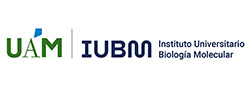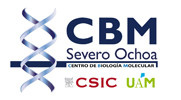Regulation by RNA in the stress and virulence
Prof. Graciela Pucciarelli. Profesora Titular. Departamento de Biología Molecular. UAM.
Listeria monocytogenes is a foodborne bacterial pathogen that causes listeriosis, a severe disease mostly affecting pregnant women, elderly, and immunocompromised individuals as well as livestock. L. monocytogenes exhibits an outstanding capacity to tolerate widely used practices in the food industry that control microbial growth in food, including refrigeration. Our main objective is to understand the regulatory mechanisms and the adaptive strategies that allow L. monocytogenes to grow at refrigeration temperatures (0-4ºC).
During these last two years, our experimental approach has relied on systems-level approaches to identify transcriptional and post-transcriptional regulatory networks at 4ºC. We performed transcriptomics analyses along the acclimation from 37ºC to 4ºC, which showed the participation of transcriptional regulators and small non-coding regulatory RNAs (sRNAs) in two defined phases catalogued as early and late responses (Fig. 1A‑B). We are currently characterizing the precise functional role of these regulators in cold adaptation and, in addition, focusing on cell wall proteome changes occurring specifically at 4ºC. The available data indicate that at least two surface proteins are produced only in cold. The next studies are designed to investigate the contribution of these proteins to the adaptive response and to characterize the mechanisms that control their expression.
We expect that the understanding of the regulatory mechanisms governing the L. monocytogenes capacity to tolerate cold temperature will provide the field with novel targets useful to prevent its growth in refrigerated food. These new antimicrobial preventive practices during food processing and storage will ultimately reduce the risk of L. monocytogenes infections in both humans and livestock.


